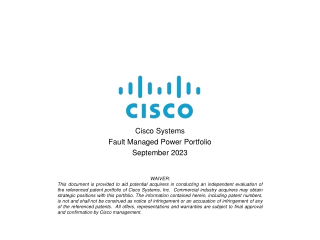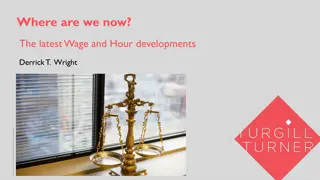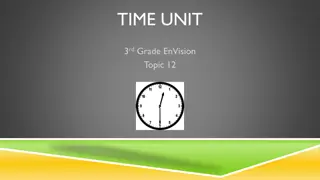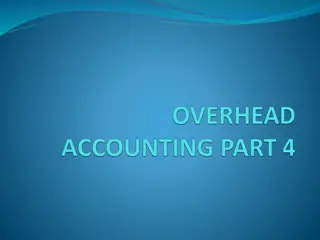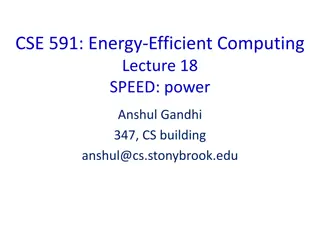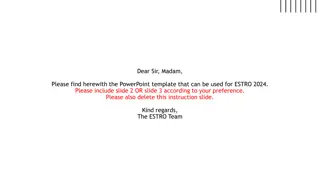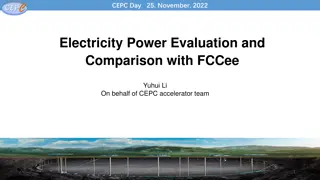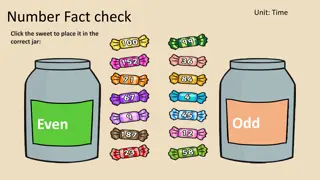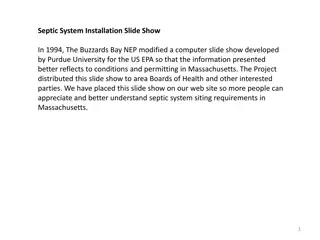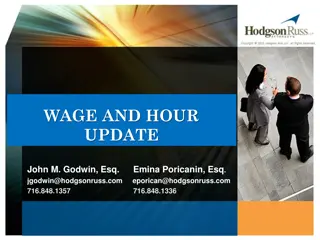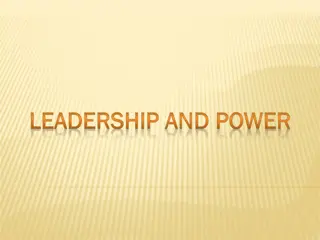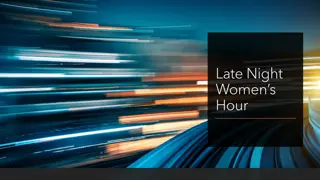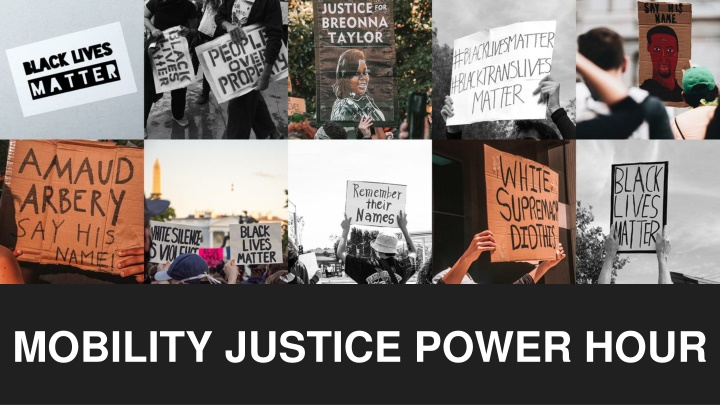
Exploring Mobility Justice and Anti-Racist Transportation Policies
Delve into the intersection of mobility justice and anti-racist transportation policies, examining the impact of systemic racism on urban planning and infrastructure. Learn about resources and discussions surrounding equitable city design and the role of soft power in perpetuating injustices within built environments.
Download Presentation

Please find below an Image/Link to download the presentation.
The content on the website is provided AS IS for your information and personal use only. It may not be sold, licensed, or shared on other websites without obtaining consent from the author. If you encounter any issues during the download, it is possible that the publisher has removed the file from their server.
You are allowed to download the files provided on this website for personal or commercial use, subject to the condition that they are used lawfully. All files are the property of their respective owners.
The content on the website is provided AS IS for your information and personal use only. It may not be sold, licensed, or shared on other websites without obtaining consent from the author.
E N D
Presentation Transcript
We are on Native Land
Resources A full list of resources can be found here: https://transportationchoices.org/mobility-justice-power-hour/ What we will be looking at: Safe Streets Are Not Safe for Black Lives Untokening 1.0 Principles of Mobility Justice Confronting Power and Privilege Coronavirus is not fuel for urbanist fantasies Designing for a more equitable city (video) Talk Policy To Me: Talking Anti-Racist Transportation Policy (podcast)
Lets Begin Grab your first article, book, podcast, or video. Tell us what you re starting with in the chat!
So what does anti-racist transportation policy look like? And how can we incorporate the principles of anti-racism into how we design transportation policies and plan transportation infrastructure? REEM RAFEF Talking Anti-Racist Transportation Policy | Talk Policy To Me Ep. 305
us or preventing us from being able to be the transit system that is world class. So we've got a ways to go and I'm happy to be part of, part of the group of people who have to make really difficult decisions to get us there. But the reality of racism and classism, that is what's pervading LATEEFAH SIMON Talking Anti-Racist Transportation Policy | Talk Policy To Me Ep. 305
For nearly every injustice in the world, there is an architecture that has been planned and designed to perpetuate it. BRIAN LEE JR. America s Cities Were Designed to Oppress | CityLab
unwilling to be participants in their own demise; it is often the soft power of the built environment that provides the preconditions for that dehumanization and the atrocities that follow. Rebellion is a response to a prolonged dehumanization of a people BRIAN LEE JR. America s Cities Were Designed to Oppress | CityLab
transportation barriers and revitalizing cities were and still are often rooted in long standing racial prejudice, and carried with them cascading effects that worsened pre-existing inequalities. Policies that on their face may have appeared to be about easing LINDA POON The Racial Injustice of American Highways | CityLab
potential economic and social benefits of investments in public transit. However, if implemented without proper community engagement, these projects can facilitate and exacerbate racial segregation. As a transit enthusiast, it's easy to get excited about the REEM RAFEF Talking Anti-Racist Transportation Policy | Talk Policy To Me Ep. 305
celebrate. Part of breaking out of the spin cycle is to stop the numbness and self-imposed paralysis. White supremacy only flourishes under these conditions. Instead, feel your feelings and reconnect to your own heart. Welcome the broken heart. As poet Rumi wrote, You have to keep breaking your heart until it opens. If you are feeling anger or grief by what I have shared, then I MELIA LACOUR A Call to White People: It s Time to Live in The Answer South Seattle Emerald
mean for us to be community to each other? And if we re going to be community, what should our neighborhood look like? How should our streets function? We really do have to remake this country. We have to ask ourselves in bold ways, what does it LUCAS JOHNSON Living the Questions - When no question seems big enough | OnBeing
of sustained protests. Protests that last not just days, not just weeks, but months and it is important that we tap into that if we are going to make real change. We have a long history in this country in our civil rights movements IJEOMA OLUO How are you going to keep up the fight? | Facebook Video
eyes on the black people which is why some African Americans disengage from public spaces like parks altogether. These peaceful green spaces just as easily induce anxiety and trauma for black and brown people, especially when they know the cops can be unleashed at any moment. The Jane Jacobian idea of eyes on the street very easily becomes BRENTIN MOCK The Toxic Intersection of Racism and Public Space | CityLab
outrage as black people is justified. As the CNN commentator Don Lemon said recently: The knee has always been on our neck. But your outrage, white America, is not enough. What many of us want is fundamental, consequential and absolute change. Our outrage as black people is justified. Let me say that again. Our CAROLYN FINNEY The perils of being black in public: we are all Christian Cooper and George Floyd | The Guardian
limiting who has access to what was previously a public right-of- way. Opening a handful of streets for one type of user doesn t mean that those streets are open for everyone. Turning sidewalks into restaurants ends up privatizing space, ALISSA WALKER Coronavirus is not fuel for urbanist fantasies | Curbed
recover from the pandemic, many advocates, including former President Barack Obama, are calling for a recovery that doesn't allow the kind of "normalcy" that allows racial violence to persist. With so much energy and thought devoted to helping the country JAMES BRASUELL Violence Against Black Americans a Moment of Reckoning for the Planning Profession | Planetizen
officers, violent white terrorists, the violence of racial health disparities, the violence of COVID-19 all the racist power and policy and ideas that kept the black experience in the American nightmare for 400 years? Where was the National Guard when you faced violent police IBRAM X. KENDI The American Nightmare | The Atlantic
consider racism, xenophobia, and state violence as factors in why BIPOC individuals may not be voluntarily walking, biking, and riding transit in the same numbers as white people. We have to think beyond bike lanes and better bus headways and COURTNEY COBBS Ahmaud Arbery s death, mobility justice, and the open streets debate | Streets Blog Chicago
justice. I need them to get up every day and repeat and ask themselves five questions and really face themselves and their answers. I want them not just to lean in, but to live in, to an urgency to do more. I really need white people to do more than just say they re fighting for TAMIKA BUTLER Stop Killing Us: A Real Life Nightmare | Medium
systemic racism to simply be a problem of different groups not seeing each other I need you to see yourself, really see yourself, first. This is the top priority. And as much as I d like you to see me as much as I d like IJEOMA OLUO White People: I Don t Want You To Understand Me Better, I Want You To Understand Yourselves | Medium
themselves say the answers: I want [white people] to sit with these things and not turn away when they hear 1. Do I understand that not being racist isn t the same as being anti-racist? 2. Why am I so afraid to be brave enough to confront my power and privilege? 3. What am I waiting for to decenter whiteness and realize just because I have never experienced it (or seen the research to prove it) doesn t mean it isn t real? 4. What am I doing every single day to force myself to think about racism and white supremacy? 5. What am I doing every single day to stop the killing of black people? TAMIKA BUTLER Stop Killing Us: A Real Life Nightmare | Medium
grapple with the complexity of wanting to increase the availability of sustainable mobility options and hold space for the trauma transportation and city planning have inflicted on our communities. The mental and emotional toll of walking this tightrope of internal tension can be profound. But we walk it, steadfastly. Those of us who serve Black and Brown neighborhoods often ARIEL WARD A Tale of Two Truths: Transportation and Nuance in the Time of COVID-19 | Medium
center the voices of their black, Latino, Asian-American, and immigrant neighbors who have sacrificed their bodies, their well- being, and the health of their families to keep cities intact, even as they faced discrimination and harassment. The people who claim to care about cities have one role now: to ALISSA WALKER Coronavirus is not fuel for urbanist fantasies | Curbed
In this work it is imperative that we know our history because you can t move forward with empowering the future if you don t know the past. DARA BALDWIN Attention Transportation Advocates: Race Is A Part Of The Work | The WIYATT
Are you going to answer the call or keep saying that equity in transportation is work for another day and for someone else often BIPOC people? TAMIKA BUTLER Confronting Power and Privilege | Medium
Every day, the people in transportation agencies at every level of government are faced with decisions that mean the difference between sustained progress, or a continuation of violent oppression. National Association of City Transportation Officials NACTO stands in solidarity and commitment with the #BlackLivesMatter movement
Mobility justice recognizes that communities are often treated as if they are unfit to design their own futures, guide public spending, or understand the real issues at hand and demands that new decisionmaking systems and structures are created by and for these communities to center their visions and cultivate operating principles that align with their values and lived experiences. THE UNTOKENING Untokening 1.0 Principles of Mobility Justice
creating change in transportation (or any other issue) and not recognize that race is at the core of the work. The Civil Rights movement started on December 20,1956 in Montgomery, Alabama. That is the day that Rev. Dr. Martin Luther King, Jr. boarded a bus to mark the end of the boycott that lasted 382 days and announced the start of the Civil Rights Movement. There is absolutely no way any genuine advocate can work in DARA BALDWIN Attention Transportation Advocates: Race Is A Part Of The Work | The WIYATT
so fundamentally broken, from inception, that a band- aid is not going to do it. We have to be brave enough to reimagine what our lives would look like. We keep trying to put band-aids on something that is LUCAS JOHNSON Living the Questions - When no question seems big enough | OnBeing
real and deep grief of those who have lost loved ones from the disease. We also ignore the extraordinary injustice of all of the myriad systems that have created a situation in which black and brown people are more susceptible to death from this disease in the first place: the segregation, the lack of economic access, the blaming poverty on the poor rather than on our economic system, the suppression of voting rights, the denial of equal education, the denial of opportunities to build wealth and, most of all, the denial of basic humanity. When we frame the pandemic as an opportunity... we not only belittle the ALICIA JOHN-BAPTISTE A Letter to White Urbanists | SPUR
person that doesn't think that everything is about race, then you are a person with an extreme amount of privilege and I am so so sad for you. Because it means you are not doing the best work you can do in your position. Everything is about race. Every single thing. And if you are a TAMIKA BUTLER Planning While Black, A Powerful Call for Racial Equity
of race. If you're Black or Latino you're six times more likely to not have a car and to be dependent on public transit When we don't fund public transit, we are basically saying, we care about some people more than others. One of the underlying issues is always going to be the issue HASAN MINHAJ Why Your Public Transportation Sucks | Patriot Act
quality of life, we have to be willing to disrupt what has been the default mode in urban planning one that centers whiteness and silences Black and Brown people and low-income communities. If we want to see streets filled with joy and true low-stress access to This dynamic plays host to white supremacy by imposing pilots and experiments on low-income communities that deserve long-term planning and participatory processes. DESTINY THOMAS Safe Streets Are Not Safe for Black Lives | CityLab
I m pretty sure they understand what s happening. But if we don t talk to them, ask them, and listen to them until after transportation decisions are already made, then we re just doing things exactly the way we did them before. We are trying to retrofit equity without having to confront the role our industry plays in maintaining the status quo of racism and oppression. BIPOC folks are on the frontlines of this crisis and most crises. TAMIKA BUTLER Confronting Power and Privilege | Medium
the body allows for the consideration of the constraints imposed upon that body and centers the lived experience of marginalized people. Shift the conversation from streets to bodies. Focusing on THE UNTOKENING | Adonia Lugo, Naomi Doerner, Do Lee, Sarah McCullough, Sahra Sulaiman and Carolyn Szczepanski Untokening Mobility: Beyond Pavement, Paint and Place
the United States and the history of our country and the building of our country and the functioning of our country, we much more than matter. We are essential. We are critical. We don t just matter. We don t just make a difference. If I m going to reflect on black life in the relationship to LUCAS JOHNSON Living the Questions - When no question seems big enough | OnBeing
Discussion Time Thank you for joining us.

